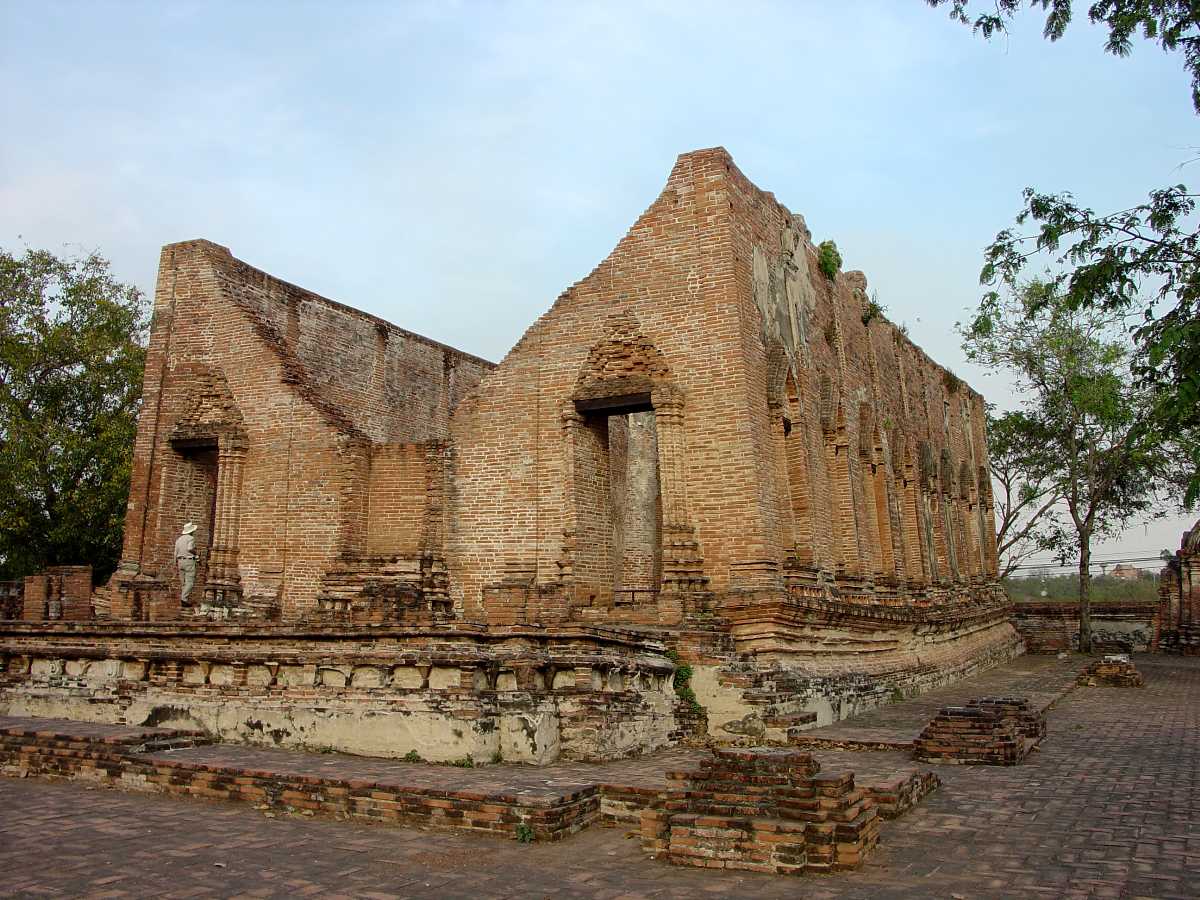Wat Kudi Dao
Tags : Buddhist Temple
Timings : 8:00 AM - 5:00 PM
Time Required : 1-2 hrs
Entry Fee : No Entry Fee
Wat Kudi Dao, Ayutthaya Overview
Wat Kudi Dao, also known as “Wat Kudee Dao” or “Wat Kudidao”, is a restored ruin of a Buddhist monastery in Ayutthaya district. Dubbed the Monastery of the Star Dormitory, restoration work began in 1711 and was completed in 1715. The temple was the residence of an important priest called Phra Then Muni who advised Prince Borommkot, the leader who had overlooked the restoration work.
The temple’s key features are the Sri-Lanan style chedi (stupa) at the centre flanked by a grand hall called an ‘ubusot’ to the east, an assembly hall called ‘viharn’ to the west. It was built in an area highly-concentrated by temples, including Wat Maheyong that was built by the prince’s brother. Wat Kudi Dao was abandoned with the fall of the empire in 1767, but these beautiful ruins still display the amazing craftsmanship of the empire that should not be missed.
Read More on Wat Kudi Dao
Architecture of Wat Kudi Dao

The temple’s architecture continues to draw tourists today as a good example of Ayutthaya style of buildings. It has 5 important buildings. The ubosot (ordination hall) has an east-facing entrance with three front gates and two back gates. It is 15.5 metres (50 feet) long with a width of 27 metres (88 feet).
The image hall, called the viharn, has two front gates and two back gates. Beside it, the bell-shaped chedi (stupa) follows a Sri Lanka style of architecture and has eight smaller stupas surrounding it. It had a square platform on which worshippers would take rounds of the stupa. These three buildings have a low-enclosure wall surrounding it. Outside of this wall, a building called the Tumnak Kummalaen was the former residence of King Boromkot while construction was still taking place.
The sermon halls here are distinguished by their tall colonnade with lotus shapes carved into the pillars. There are also false windows that were once beautified with gold leaves and black lacquer. The temple has two canals passing through it, one from north to south (called Khlong Kudi Dao or Khlong Ayodaya) and the other from east to west (called Khlong Pradu). This made the temple strategically important. For additional protection, there was even a moat built around it and remnants of the dug-up moat exist today.
Tips While Visiting Wat Kudi Dao
-
As this is a religious place, it’s a good idea to dress respectfully. Opt for long pants and skirts that cover your legs. If you don’t want to wear sleeved tops, please carry a scarf to cover your shoulders inside the premises.
-
Do remove your footwear before entering the temple.
